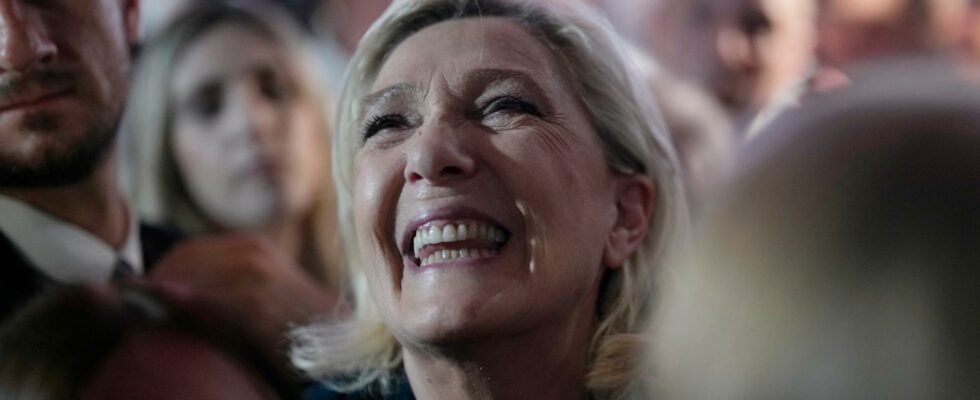unsaveSave
expand-left
full screen France’s far-right leader Marine Le Pen reacts to the results of the first round of the French parliamentary elections. Her party, National Gathering, advanced strongly. Photo: Thibault Camus/AP/TT
Success for both the far-right and the far-left in the first round of the French election suggests that the other could be a nail-biter.
Now awaits a week of tactics and gathering strength to lure the French back to the polls.
“Historic elections, historic voter turnout”, writes the television channel BFMTV on its website, referring to the unusually high turnout in the first round of the French parliamentary elections.
BFMTV and several other media estimate the turnout at around 66 percent. The last time France saw a similar turnout in a parliamentary election was over 20 years ago.
– It is a sign of how seriously the French voters assess the situation, says Göran von Sydow, head of the Swedish Institute for European Political Studies (Sieps).
Three candidates
The first round was a great success for the far-right National Gathering (RN), which became the largest party. But the election is not over and the result is not clear. The parties have until Tuesday evening to announce which candidates they stand with in the single-member constituencies in the second round, which will be held on Sunday 7 July.
– Now a lot is about how the parties should think strategically and tactically in relation to collaborations in different constituencies. This election has really cemented the tendency in French politics: that there are three blocs standing against each other.
The high turnout resulted in three candidates advancing in several constituencies – one from each alliance.
Chance didn’t go home
– There have been signals from the left alliance and (President Emmanuel) Macron’s center movement about how to cooperate in order to maximize the chances of striking back against the RN. If both stand, the probability is that the RN would get a majority. But if they instead withdraw their candidates, a “republican front” can be mobilized, says Göran von Sydow.
Such a “republican front” means that the parties come together to stop the success of the RN. But if the left-wing alliance NFP, which includes both the old social democratic ruling party PS and the now larger and left-wing radical LFI, succeeds in agreeing with Macron’s bloc to withdraw one’s candidate in order to win over voters to the other, they could block for RN.
Regardless of the election outcome, Macron’s role is greatly weakened, according to von Sydow.
– After seven years of dominance on the French political scene, it is clear that his gamble to call new elections has not paid off.
